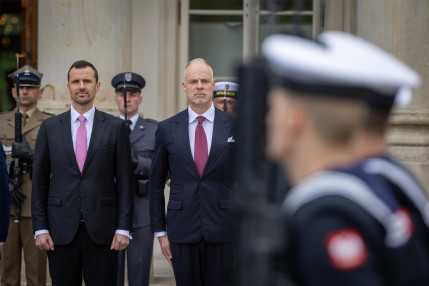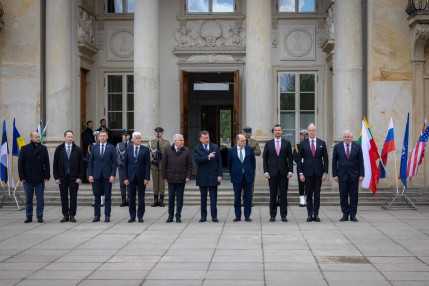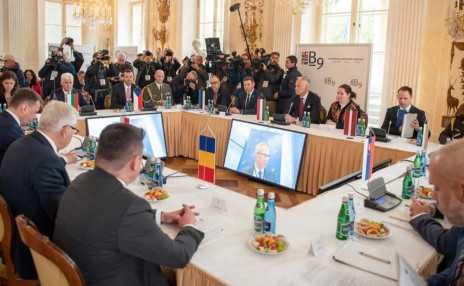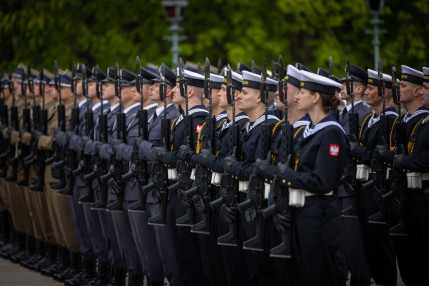Hungary undertakes a significant role in strengthening NATO’s eastern flank
Text: Ministry of Defence | Photo: Defence Minister Kristóf Szalay-Bobrovniczky’s Facebook page | 12:37 April 27, 2023Hungary undertakes a significant role in strengthening NATO’s eastern flank – stated Defence Minister Kristóf Szalay-Bobrovniczky after the meeting of defence ministers of the Bucharest Nine (B9) in Warsav on 26 April.

Apart from the defence ministers of the “Bucharest Nine – B9” group, which brings together NATO allies situated on NATO’s eastern flank, the meeting was also joined by the UK Secretary of State for Defence. Kristóf Szalay-Bobrovniczky said that in the current war situation, Hungary considers it especially important to discuss its position in this circle as well ahead of NATO’s Vilnius Summit in July.
The minister stated that the war raging in Ukraine immediately affects each B9 country. He made it clear that Hungary’s position continues to be unchanged: the government of Hungary is on the side of peace, and is of the opinion that the only way to end the war is by immediate ceasefire and the start of peace talks. He added that we continue not to support arms supplies, since every shipment of weapons and ammunition results in the prolongation of the war and its further escalation. At the same time, he asked the international community in this forum, too, to support the efforts aimed at ceasefire and the start of peace talks.

The minister underlined that “Supplying weapons is not our idea of supporting Ukraine. But we have also reminded our partners of the fact that – besides condemning the Russian aggression from the beginnings and standing up for Ukraine’s territorial integrity and sovereignty – in the framework of the largest-scale humanitarian aid program in the history of Hungary, we are providing support to Ukrainians fleeing from the war, and also those who remain in Ukraine where they have to suffer the horrible effects of war.”
Kristóf Szalay-Bobrovniczky said that the role undertaken by the member countries in NATO and the strengthening of NATO’s eastern flank had also been among the topics of discussions. These nine countries, meaning the Visegrád Four, the Baltic Three, Romania and Bulgaria, undertake to actively participate in strengthening this unity in NATO. He added that as a committed member of the Alliance, Hungary is fulfilling its pledges as an ally: it has reached the GDP 2% level of defence spending one year earlier than the target date.

The minister also noted that as we are approaching the NATO Summit, the enlargement of the Alliance had naturally been discussed at the meeting. Hungary supports the “open door policy”; nevertheless, it encourages its partners to proceed judiciously. Any decisions on this matter must be taken on condition that the aspirant countries meet all membership criteria and NATO allies achieve general consensus. The European Union, too continues to fill an increasingly important role in the field of security and defence. Hungary is interested in an EU that is built on strong nation states.
The EU, however, should not forget the other regions in its neighborhood and their importance. Beyond the war in Ukraine, the other challenges and threats to the security of Europe are still here. The minister also highlighted that besides the war in Ukraine, we should not forget the threat of illegal mass migration from the south, which can be mitigated through supporting the security of Western Balkan countries and the source regions of migration, and this is a task in which Hungary is taking an active part as well.
